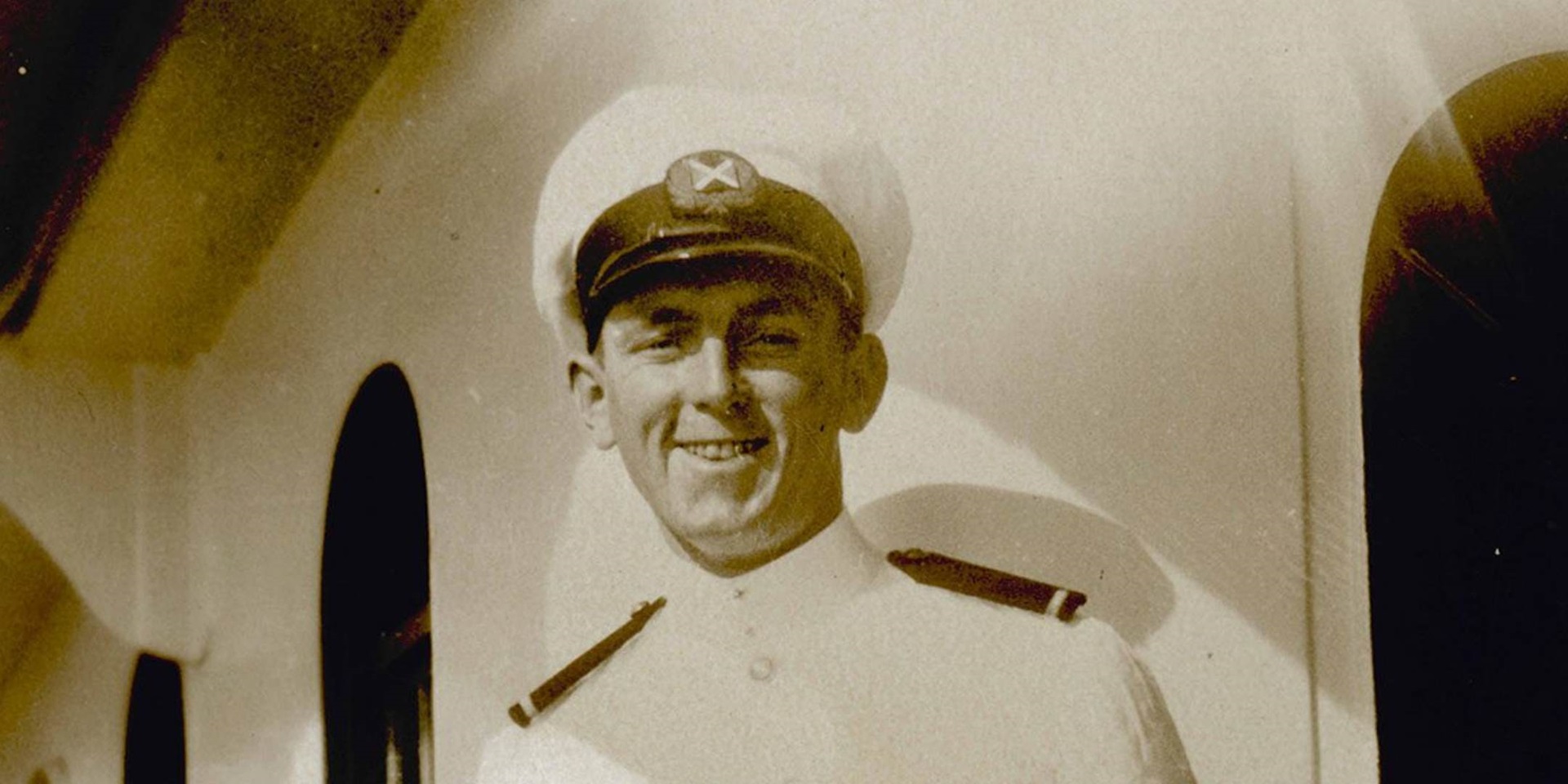
Going behind enemy lines
In June 1937 at the height of the Spanish Civil War a dirty, black British ‘tramp steamer’ was standing off the Asturian coast, just outside the territorial waters off the northern coast of Spain. The master of the unassuming cargo ship Marion Moller was waiting for a chance to run a blockade of Spanish ports by gunboats and aircraft of General Franco’s ‘insurgent’ forces. His ship had been contracted by the beleaguered Spanish Republican government with landing much-needed supplies to the town of Gijon.
After two weeks of playing cat and mouse and just when he had given up all hope, there was a break in the patrols, and Captain Fowler ordered full steam ahead for the Marion Moller. He followed the wake of another British vessel which was desperately avoiding bombs from aircraft and shells from Franco’s naval vessels in hot pursuit.
In what Fowler described later in a letter to his father as ‘the longest 24 minutes’ he had ‘ever put in’, the unassuming yet sturdy Marion Moller managed to evade shellfire and make the wharves of Gijon. The ship was greeted with wild cheering from the crowded quayside and when he stepped ashore Captain Fowler received what was reported as ‘quite an ovation’ from Spanish people ‘wild with excitement’ that his cargo of 6,000 tons of badly needed food had made it through the blockade.
After unloading the supplies, Fowler took on board hundreds of refugees from the bitter and bloody war that was raging across Spain and hurried them off to safety in France. The captain of the Marion Moller was a 34-year-old Australian merchant seaman, William Simon Stewart Fowler. This is the story of this Australian merchant sailor who found himself caught up in the Spanish Civil War, and under the fire of General Franco’s guns, while rescuing refugees from the Basque region in Spain.

This group of wounded Republican soldiers in Spain during the civil war awaiting embarkation to Britain includes Australian Charles Walters. Walters (lower left, wearing peaked cap), served in the 15th International Brigade on the Ebro and Aragon Fronts. Image: Australian War Memorial Collection.
Remembering our merchant sailors
2016 marks the 80th anniversary of the beginning of the Spanish Civil War (1936-1939). While the involvement of the International Brigades – volunteers from around the world who went to fight ‘against Fascism’ – is well known, the story of the seventy or so Australians who volunteered to fight or assist the Republican forces against General Franco’s fascist troops is not.
Recognition of their service in what many thought was a just cause against the rise of Fascism in Europe was a long time coming. It was not until 1993 that a plaque was unveiled in Canberra. It could not be at the Australian War Memorial as their service in this war was not sanctioned by the Australian Government. The plaque was placed just behind the Hilton Hotel on the shore of Lake Burley Griffin. Typically, the involvement of the merchant sailors who ran blockades under fire, went even more unnoticed.
William Fowler was born in Sydney in 1903, the son of a Scottish forensic Police officer who had immigrated to Queensland in 1890 and married an Australian. William went to sea at a young age and his early career was on sailing vessels – his second ship was the Maid of England a three masted barquentine.
![One of the vessels Fowler sailed on in the 1920s – possibly the three masted barquentine Maid of England. ANMM Collection: ANMS1397[048].](https://stories.anmm.gov.au/spanish_civil_war/wp-content/uploads/sites/31/2016/03/anms1397033-756x960.jpg)
One of the vessels Fowler sailed on in the 1920s – possibly the three masted barquentine Maid of England. ANMM Collection: ANMS1397[048].
![A letter from the Headmaster to William Fowler’s parents. The restless, ‘troublesome’ boy seemed destined for a career at sea. ANMM Collection: ANMS1397[021].](https://stories.anmm.gov.au/spanish_civil_war/wp-content/uploads/sites/31/2016/03/anms1397021-781x960.jpg)
A letter from the Headmaster to William Fowler’s parents. The restless, ‘troublesome’ boy seemed destined for a career at sea. ANMM Collection: ANMS1397[021].
![A reference for the young Fowler in 1920 from the Master of the Maid of England. ANMM Collection: ANMS1397[111].](https://stories.anmm.gov.au/spanish_civil_war/wp-content/uploads/sites/31/2016/03/anms1397111-770x960.jpg)
A reference for the young Fowler in 1920 from the Master of the Maid of England. ANMM Collection: ANMS1397[111].
Although having some differences with his school teachers, William appears to have gained a reasonable education and whilst at sea wrote long and descriptive letters to his father, after his mother died in 1926. By the 1930s he had sat his Master’s exams and advanced to the rank of Second Officer. He joined the Moller Line – a small but expanding Hong Kong listed shipping company based in Shanghai – in January 1936 as Second Officer on the SS Marion Moller. Fowler was promoted to Chief Officer in March, then to acting Master in January 1937. A later reference from the Moller line was full of praise for his service with the company.
Fowler’s career in the merchant service took an eventful turn when in April 1937 the Marion Moller was chartered for four months to a firm in London. As Fowler wrote in a letter to his father from Hamburg;
…it was originally intended for us to load in Hamburg after docking but later they changed their plans and we are now en route to Antwerp to load, I believe, a cargo of grain, destination unknown, but from hints dropped, I think it will be Spain.
Fowler wryly noted that ‘Spain of course isn’t too pleasant a spot just now…’
 An unused deposit slip for Fowler’s membership of the Merchant Service Guild of Australasia from 1926. ANMM Collection: ANMS1397I018I.
An unused deposit slip for Fowler’s membership of the Merchant Service Guild of Australasia from 1926. ANMM Collection: ANMS1397I018I.
